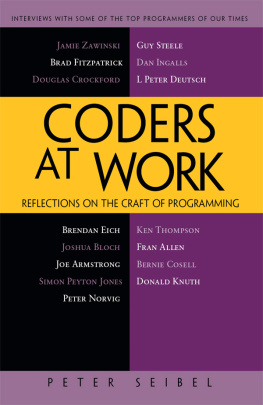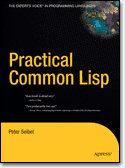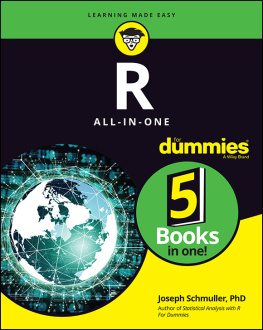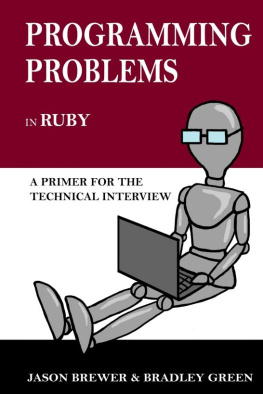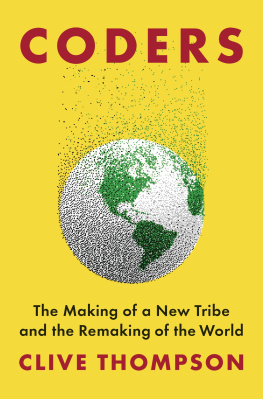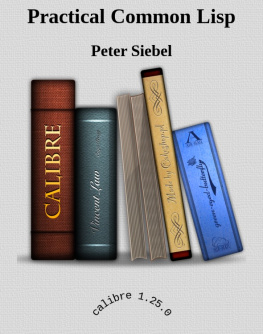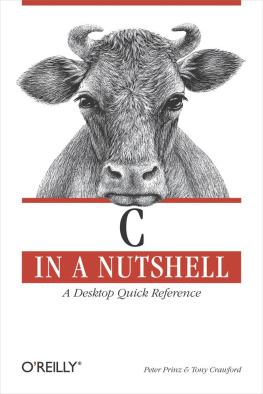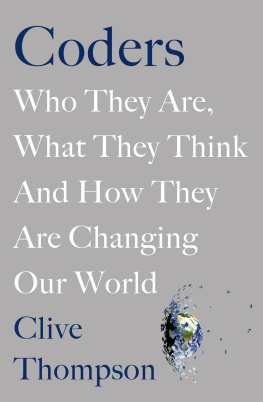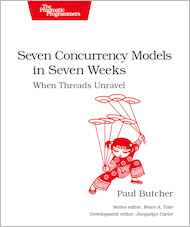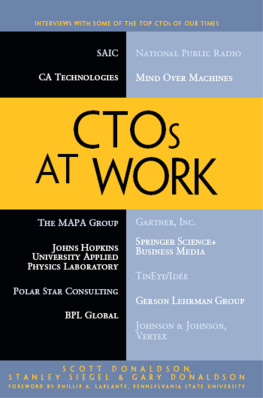Peter Seibel - Coders at Work: Reflections on the Craft of Programming
Here you can read online Peter Seibel - Coders at Work: Reflections on the Craft of Programming full text of the book (entire story) in english for free. Download pdf and epub, get meaning, cover and reviews about this ebook. year: 2009, publisher: Apress, genre: Computer. Description of the work, (preface) as well as reviews are available. Best literature library LitArk.com created for fans of good reading and offers a wide selection of genres:
Romance novel
Science fiction
Adventure
Detective
Science
History
Home and family
Prose
Art
Politics
Computer
Non-fiction
Religion
Business
Children
Humor
Choose a favorite category and find really read worthwhile books. Enjoy immersion in the world of imagination, feel the emotions of the characters or learn something new for yourself, make an fascinating discovery.
- Book:Coders at Work: Reflections on the Craft of Programming
- Author:
- Publisher:Apress
- Genre:
- Year:2009
- Rating:5 / 5
- Favourites:Add to favourites
- Your mark:
Coders at Work: Reflections on the Craft of Programming: summary, description and annotation
We offer to read an annotation, description, summary or preface (depends on what the author of the book "Coders at Work: Reflections on the Craft of Programming" wrote himself). If you haven't found the necessary information about the book — write in the comments, we will try to find it.
Peter Seibel interviews 15 of the most interesting computer programmers alive today in Coders at Work, offering a companion volume to Apresss highly acclaimed best-seller Founders at Work by Jessica Livingston. As the words at work suggest, Peter Seibel focuses on how his interviewees tackle the day-to-day work of programming, while revealing much more, like how they became great programmers, how they recognize programming talent in others, and what kinds of problems they find most interesting.
Hundreds of people have suggested names of programmers to interview on the Coders at Work web site: www.codersatwork.com. The complete list was 284 names. Having digested everyones feedback, we selected 15 folks whove been kind enough to agree to be interviewed:
- Frances Allen: Pioneer in optimizing compilers, first woman to win the Turing Award (2006) and first female IBM fellow
- Joe Armstrong: Inventor of Erlang
- Joshua Bloch: Author of the Java collections framework, now at Google
- Bernie Cosell: One of the main software guys behind the original ARPANET IMPs and a master debugger
- Douglas Crockford: JSON founder, JavaScript architect at Yahoo!
- L. Peter Deutsch: Author of Ghostscript, implementer of Smalltalk-80 at Xerox PARC and Lisp 1.5 on PDP-1
- Brendan Eich: Inventor of JavaScript, CTO of the Mozilla Corporation
- Brad Fitzpatrick: Writer of LiveJournal, OpenID, memcached, and Perlbal
- Dan Ingalls: Smalltalk implementor and designer
- Simon Peyton Jones: Coinventor of Haskell and lead designer of Glasgow Haskell Compiler
- Donald Knuth: Author of The Art of Computer Programming and creator of TeX
- Peter Norvig: Director of Research at Google and author of the standard text on AI
- Guy Steele: Coinventor of Scheme and part of the Common Lisp Gang of Five, currently working on Fortress
- Ken Thompson: Inventor of UNIX
- Jamie Zawinski: Author of XEmacs and early Netscape/Mozilla hacker
Programmers interested in the point of view of leaders in the field. Programmers looking for approaches that work for some of these outstanding programmers.
Table of Contents- Jamie Zawinski
- Brad Fitzpatrick
- Douglas Crockford
- Brendan Eich
- Joshua Bloch
- Joe Armstrong
- Simon Peyton Jones
- Peter Norvig
- Guy Steele
- Dan Ingalls
- L Peter Deutsch
- Ken Thompson
- Fran Allen
- Bernie Cosell
- Donald Knuth
Peter Seibel: author's other books
Who wrote Coders at Work: Reflections on the Craft of Programming? Find out the surname, the name of the author of the book and a list of all author's works by series.

